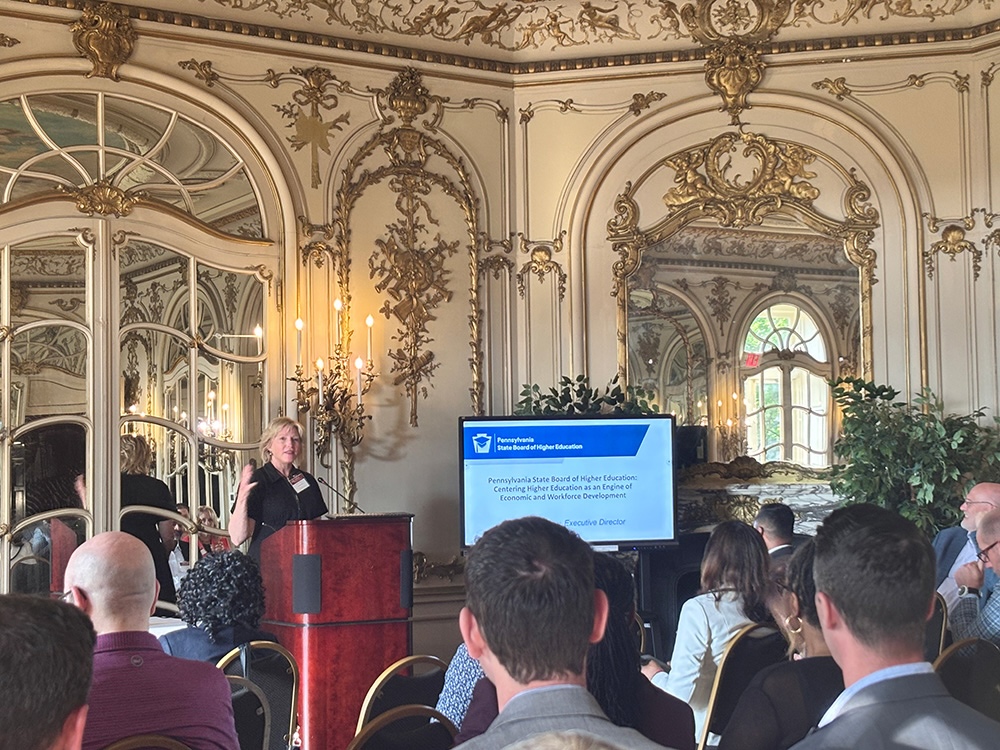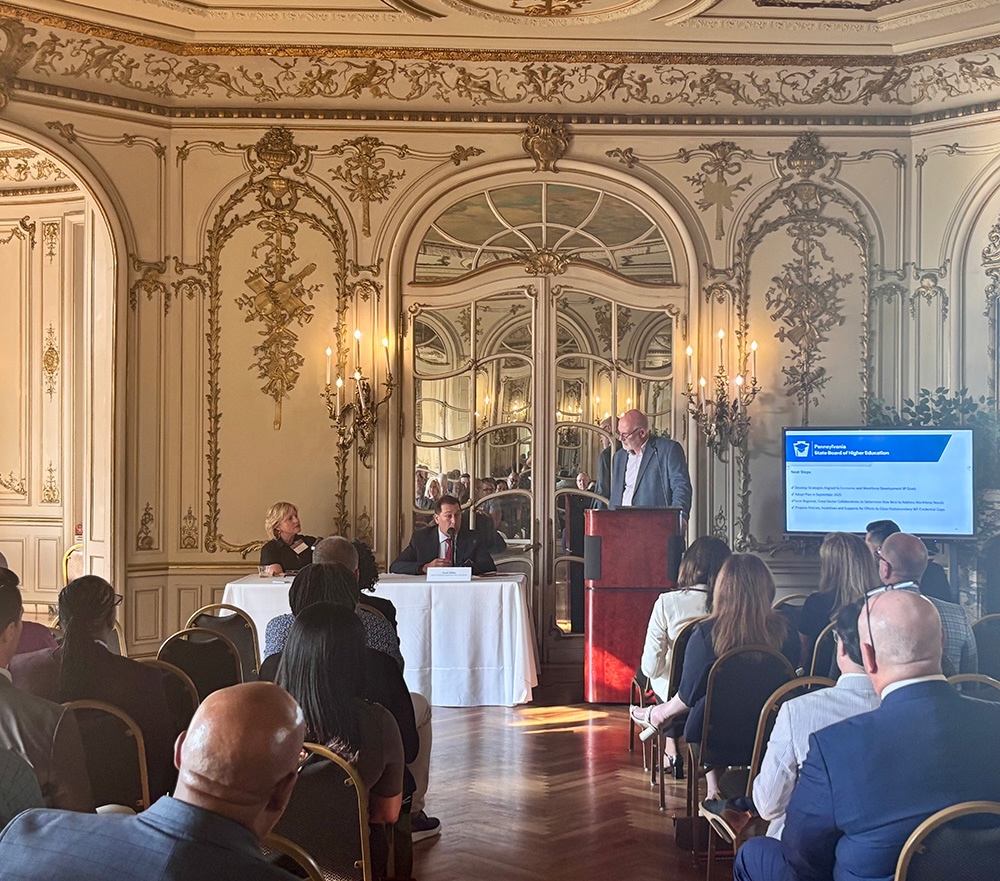Arcadia University Launches Workforce Development Program With Core Education
Business leaders, educators, and workforce innovators gathered in Grey Towers Castle on June 12 to celebrate the launch of Arcadia’s new Workforce Development program. In collaboration with Core Education, a public benefit corporation specializing in transformative business model solutions, the initiative will help employers in Pennsylvania and beyond recruit, retain, and upskill their talent.
“Arcadia’s new Workforce Development initiative is designed primarily to benefit businesses–to upskill and reskill employees, ensuring they are equipped for the challenges and opportunities of the future,” explained Arcadia President Dr. Ajay Nair.
The event opened with a cocktail reception, allowing those present to mix, mingle, and network. Organizations in attendance included: Bernstein Private Wealth Management, Comcast, Firstrust Bank, Esperanza Academy Charter School, and many others.

“We have heard from you that it’s difficult to find workers with the right skills,” President Nair told the audience. “We have heard from you that automation, AI, and digital tools are transforming the way you do business. We’ve heard from you that it’s hard to retain employees because of cost-of-living challenges. And we’ve heard from you that young generations entering the workforce are just different, and need different skills and training. The future of this region’s economy depends on our collective ability to adapt and invest in our greatest asset: our people.”
Arcadia’s new program provides access to over 150 industry-recognized certificate programs in high-demand fields such as healthcare, IT, business, and manufacturing. Many programs qualify for continuing education units (CEUs) or professional development credits and are offered in flexible online and hybrid formats, making them accessible to working professionals.
Tracy Resetar, Senior Human Resources Business Partner at Firstrust Bank, explained why Firstrust is excited to give their employees the opportunity to complete the certificate programs.
“We’re committed to investing in our employees–actually we just rolled out a new learning management system,” she said. “So this gives our employees who do not want to go through a degree program the chance to obtain a certificate in their field.”
For Dr. Christopher Palladino, Director of Teacher Development at Esperanza Academy Charter School, the focus is not on employee development, but student development and success.
“Programs such as Arcadia’s help our students realize that they do not have to be limited by a single career, a single field of study,” he said. “In addition, a four-year college might not be right for everyone. The world is still at their doorstep, and this can help them realize they are capable of seeing it.”

Dr. Kate Shaw, executive director of the State Board of Higher Education, served as the keynote speaker. She spoke on the evolving workforce landscape, the urgency of closing critical skills gaps, and how employers and educators must collaborate to prepare the next generation of talent.
“I don’t know how many people have read that U.S. News and World Report ranked Pennsylvania 50th out of 50 states in higher education,” she said. “ There is no state in the union that is doing well economically that doesn’t have a strong higher education sector. So, if we want to do what Governor Shapiro and most people want us to do, which is to power economic development and workforce development, we have to make sure that each sector is aligned and ready to do that. It’s really nice to see that Arcadia is right in the middle of this kind of thinking, welcoming employers and business, trying to figure out how to meet your credential and skill needs.”

After the keynote, Shaw joined Scott Miller, senior vice president of Corporate Partnerships at Core Education, for a panel discussion. Moderated by Dr. John Noakes, Associate Provost at Arcadia University and director of its new Center for Professional Futures, the conversation centered on the importance of workforce development, and more specifically, how we build the workforce needed for the future.
Miller gave an example of an organization he’s worked with in a manner similarly to Arcadia
“One of the largest healthcare systems in Florida, about 90,000 employees. When we met four years ago, they told us about their challenges with the workforce and how they can’t fill this position and can’t fill that position,” he said. “We had long discussions with them, and what they decided to do is to create a tuition benefit to help their employees develop and even be fast tracked for the next-in-line position.”
Shaw mentioned two items that the audience could take action on sooner rather than later.
“Call your elected officials,” she said. “ We’re in the budget season now, and business leaders tend to have a strong, influential voice. It’s nice to have the community say, ‘I think it’s time for us to do the work we need to do.’ In addition, participate in our regional councils once they get underway. Help us solve the disconnect between higher education and the workforce in Pennsylvania.”

